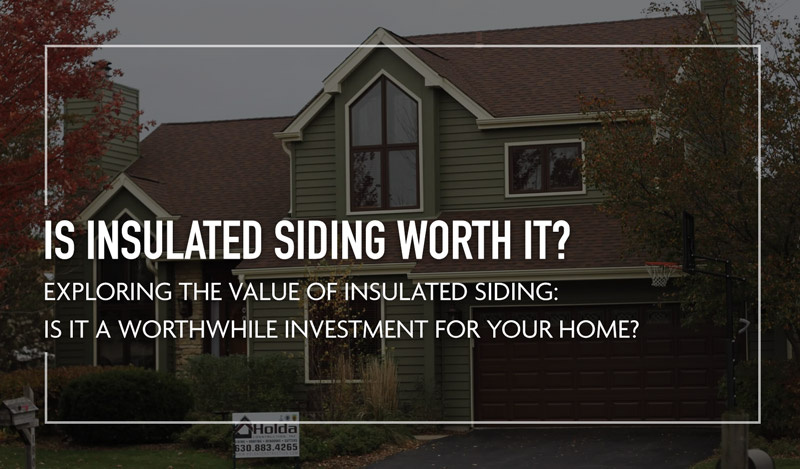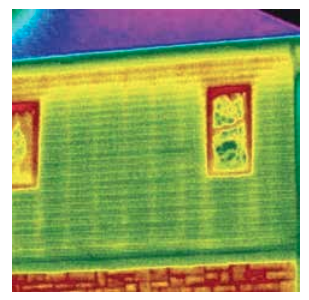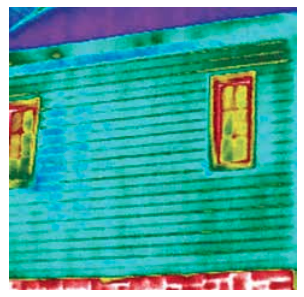IL License Number: 104.017181
IL License Number: 104.017181

Welcome to the latest blog post from Holda Roofing & Siding, your trusted family-owned roofing & siding home contractor in the Northwest Suburbs of Chicago. Today, we’re delving into the world of insulated siding. If you’re considering this for your home, you’re in the right place to learn all about it!
A process known as “thermal bridging” occurs when heat and energy leak out through the studs in the walls of your house. Haven® Insulated Siding is designed to significantly minimize this effect. The diagrams below provide a clear understanding of how this process operates.

Framing studs lack insulation, allowing heat to escape from your home through them. The yellow region illustrates the transfer of heat through these studs.

Insulation, depicted in blue, reduces the amount of energy lost through the studs in your home’s walls.
Insulated siding is a modern exterior cladding that combines traditional siding materials with a layer of insulation. This combination not only enhances the appearance of your home but also contributes to its energy efficiency.
R-Value measures the insulation’s ability to resist heat flow. The higher the R-Value, the better the insulation properties.
Different brands offer various R-Values, typically ranging from R-2 to R-6, providing substantial insulation compared to traditional siding. Our go-to brands are PlyGem / Mastic, James Hardie, and LP Building Solutions/ LP SmartSide. Each option can be explored, and we will work with you to decide which is best based on the unique characteristics of your home.
In some cases, installing insulated siding can qualify you for energy tax credits. Current IRS guidelines state that insulation materials can provide a 30% tax credit of their value, up to $1200. Energy credits change frequently, so you’ll want to check the most recent updates.
Insulated siding offers numerous benefits, from energy efficiency to improved aesthetic appeal. However, the higher initial costs and potential cons should be weighed. It’s an excellent investment for those prioritizing energy efficiency and long-term savings.
Interested in insulated siding for your home? Contact Holda Roofing & Siding today at 847.847.2883!
Our experienced team is ready to guide you through the siding replacement or siding repair options and help you make the best choice for your home.
With over twenty years in business and hundreds of satisfied customers, we know what it takes to properly maintain a home. Join the family of satisfied homeowners who trust Holda Construction Roofing and Siding for all their roofing and siding needs.
We look forward to working with you!
Address
317 W Colfax St. Suite 102
Palatine, IL 60067